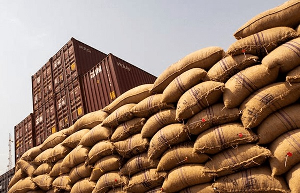The petroleum downstream sector has experienced 15% surge in consumption during 2018 under review.
That was a result of efforts towards curbing illicit fuel activities coupled with deliberate technology based schemes and policy initiatives aimed at propelling private sector growth.
Consumption grew by “15% from 3.4 million Mt in 2017 to 3.9 million Mt in 2018. The petroleum sector contributed over GH¢86 billion to Ghana’s GDP representing an average of about 8% per annum in the period 2013 to 2018.
Speaking at the 3rd edition of the Ghana International Petroleum Conference (GhIPCon), Chief Executive Officer of the National Petroleum Authority (NPA), Hassan Tampuli, said though the successes were welcoming news, there are still challenges plaguing the sector.
Some of the challenges included, “smuggling via unapproved offshore routes, dumping of Gasoil declared for sale to foreign vessels at local filling stations, under-declaration and non-declaration of products lifted at depots; diversion of subsidized social products such as premix fuel, as well as fraudulent freight claims from transporters and siphoning LPG from BRVS into surface tanks at illegal LPG tank.”
He stated that these nefarious activities cost Ghana about US$200million per annum of tax revenue; compromising product quality at filling stations due to laundering, which leads to damage to vehicle engines; and distortion of the national consumption statistics (over 300,000Mt of actual annual consumption was unreported).
He indicated that the “Unified Petroleum Price Fund (UPPF) also recorded about US$12million losses per annum.”
The NPA has since rolled out series of measures to tackle the problem head on, in collaboration with the Ghana Revenue Authority, Ghana Navy and other relevant security agencies in the country.
“We have also intensified digital solutions such as Enterprise Relational Database Management Software, Petroleum Products Marking Scheme and Bulk Road Vehicle Tracking project.”
He urged participants to use the GHIPCON platform to deliberate on the key issues in the petroleum industry with focus on strategies needed to achieve the vision of being ‘A Catalyst for Transformation’ together in line with this year’s theme.
Business News of Monday, 15 July 2019
Source: ghanacrusader.com













